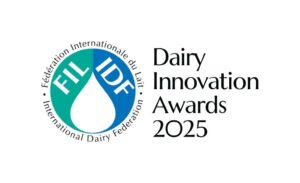
IDF launches 4th annual IDF Dairy Innovation Awards
The International Dairy Federation (IDF) has launched the IDF Dairy Innovation Awards for 2025, now in their fourth
Chile will be the first South American country to host the World Dairy Summit, a meeting promoted by the International Dairy Federation (IDF) and organized by the IDF National Committee (Chile), formed by the Ministry of Agriculture, the Federation of Milk Producers (Fedeleche) and the Dairy Consortium.
Gilles Froment, world president of the IDF (an entity that groups 70% of the global dairy chain), said that the decision to designate Chile as the venue for the meeting is an international recognition of the modernization, sustainability and innovation of the local dairy sector, its character as a strategic reference in the continent and its commitment to international collaboration.
“Chile has made very significant progress in modernizing its dairy industry and adopted a sustainability approach with the commitment of all stakeholders. Its designation is a recognition to showcase local progress and inspire regional development based on the great potential for production and consumption in Latin America. The IDF saw Chile not only as a strategic geographical location, but also as a country committed to innovation, sustainability and international collaboration.”
The event will bring together more than 1,000 specialists from over 60 countries, addressing critical aspects for global production: resilience to climate change, food safety and the incorporation of technologies such as automation and artificial intelligence in their operations. There will also be spaces to present related scientific studies. To be held between October 20 and 23 this year in Santiago, the theme of the Summit is “Nourishing a Sustainable World”, a message in line with challenges such as global food security, the nutritional contribution of dairy products for a growing population and their relevance as an economic and social activity in the five continents.
“Chile is a dynamic and evolving player in a region with immense potential, which can become a global supplier of dairy products in the future. It has the land, the climate and the talent to do so. We expect the Summit to act as a catalyst for knowledge exchange, investment and dialogue in Latin America with industry players and leaders from around the world. It is an opportunity to foster a partnership that will grow the industry. The key will be to invest in infrastructure, education and the sustainability framework that will allow its potential to be realized responsibly,” emphasized Froment.

Its latest version, held in France, culminated in the Paris Declaration, the dairy sector’s major commitment to global food security and the sustainable transformation of food systems. The document was also endorsed by the FAO and recognizes the UN’s call on the urgency of moving towards the Sustainable Development Goals of the 2030 Agenda.
It is estimated that 130 million farms around the world, employing one billion people, will be responsible for feeding billions of human beings in the five continents this century, according to the IDF. In Latin America, Chile is one of the countries with the most significant progress in this area, promoting clean production agreements and sustainability certification by the main actors in the chain.
In a context in which the world is experiencing a setback in one of the main SDGs, the eradication of hunger, the Summit will have global food security as one of its main focuses. “A report by FAO and four other UN agencies estimated that this scourge affects nine percent of the global population, or 733 million people. In Latin America, according to the report, 41 million individuals will go hungry in 2023.
The IDF stresses that dairy products are considered a cornerstone for food security on the planet, mainly because of their nutritional composition and accessibility at all stages of life: from infants to the elderly. In this context, the leader of the sectoral organization valued Chile’s experience through the National Complementary Food Program, which has contributed to eradicating child malnutrition in recent decades.
“In many regions, dairy plays a vital role in addressing both undernutrition and micronutrient deficiencies,” said the IDF global president. “At a recent dairy industry conference in Africa, for example, the nutrition gap emerged as a key issue to address for that region. The example of Chile and its programs to provide milk to children as part of a healthy diet is a testament to success. Eradicating hunger requires collaboration across the supply chain.
Against this backdrop, Froment projected high global demand for milk supply, which will be driven by the world’s two most populous nations – India and China – as well as regions such as Africa and, to a lesser extent, South America. “India and probably China will remain central players, both as dairy producers, but also with growing consumption. Dairy can play a transformative role in rural development. That growth must be balanced and take into account social and environmental responsibility.”
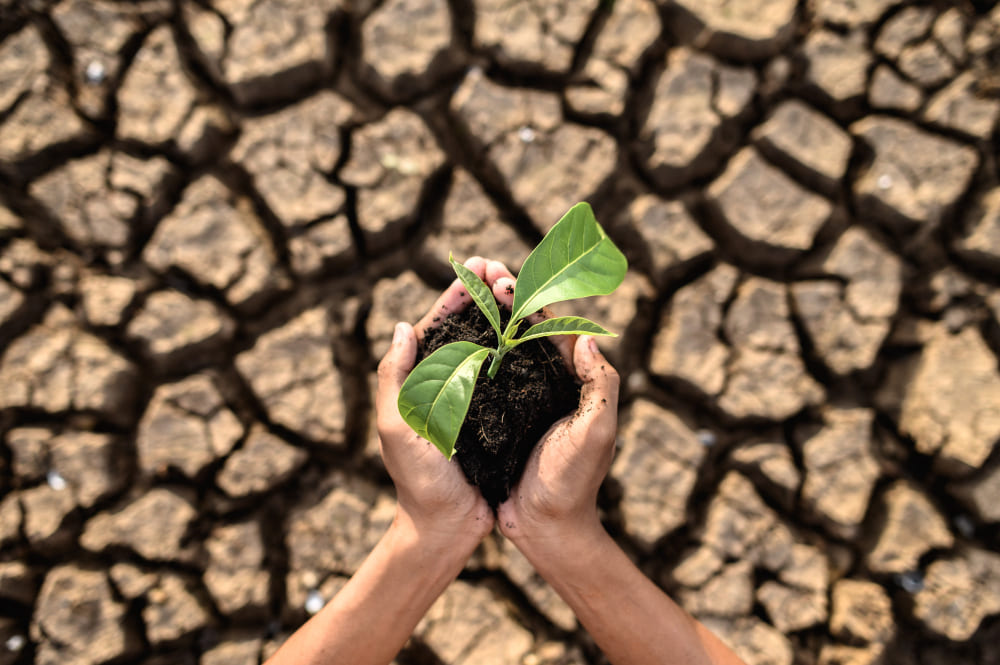
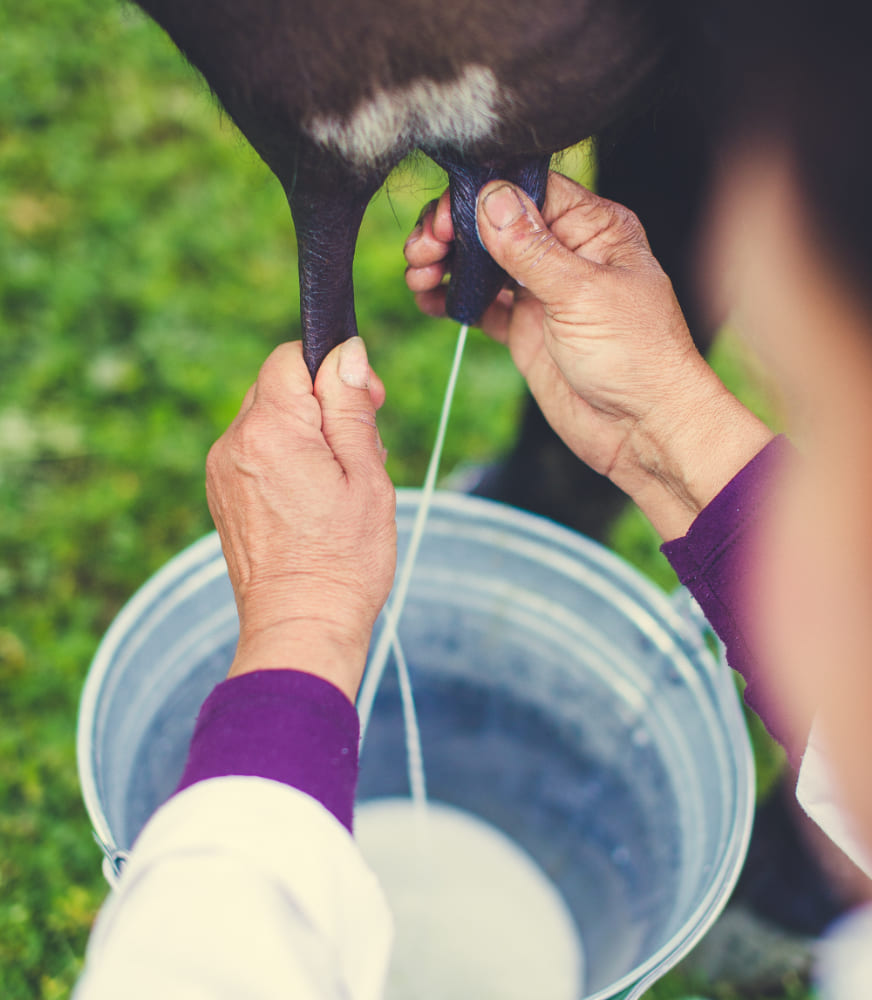
Climate change is the big challenge facing the global dairy industry today, and the sector has already begun to align itself with long-term goals. "The dairy sector is increasingly aligned with climate goals. We see many countries adopting carbon neutral and emissions tracking targets, but there is still a lot of work to be done," emphasizes Froment, who stresses that this is a real and growing momentum among producers around the world.
To address this challenge, IDF has developed specific tools such as the Life Cycle Assessment (LCA) approach to measure and reduce the environmental impact of the sector. This also coincides with the signing, in 2024, of the Paris Dairy Declaration on Sustainability (endorsed and signed by FAO), an international commitment that includes quantifiable and time-bound targets, as well as a working group to monitor, evaluate and solidify progress.
"The challenge will be to decouple economic growth from emissions and resource use. To achieve this, we will need to innovate in food use, increase productivity, improve genetics, optimize land, waste and energy management. All of this must go hand in hand with fair labor practices and a real commitment to communities. The momentum is real, we see it and it is growing, but it is just the beginning: our response to climate change is a process of continuous improvement, not a magic bullet. If we get it right, we can show that we are part of the solution".
The dairy industry is at a turning point. Faced with challenges such as climate change, food security and an aging workforce, the sector is betting on a profound technological transformation, ranging from precision farming to the use of artificial intelligence throughout the value chain. So says Gilles Froment, who stresses that the digital revolution is not only necessary, but urgent. “I think it is absolutely crucial for the dairy sector to embrace technological transformation.”
From the IDF they project that this evolution considers more digitalization, precision agriculture and circular economy models. But for this transformation to be effective, which will include greater digitization and circular economy models, the executive warns that it must be inclusive. One of the main challenges, says Froment, is to ensure that small producers have access to these tools in an equitable manner.
“It will be important to empower small producers and cooperatives to access these tools and markets. These tools will contribute to the optimization of the use of resources, help increase efficiency, reduce waste and provide transparency along the value chain,” says the senior representative, who stresses that the new digital tools have enormous potential in terms of productivity and sustainability (more efficient processes have, at the same time, a lower environmental impact).
Technology, particularly AI, will play a central role in this new paradigm: its applications range from input management to processing and logistics, contributing to a more competitive and therefore more sustainable industry. Among the positive aspects, technological transformation also opens up new possibilities to better connect with consumers, increasing transparency and traceability. At the same time, it represents a way to renew the sector’s human capital, a process that will be key to achieving higher levels of productivity and sustainability.
“Technology will attract younger generations to pursue a career in dairy, which is critical in terms of attracting and retaining talent. For that, the industry must continue to be an attractive source of good jobs, good quality jobs at all stages and levels of the supply chain,” Froment said. In his analysis, the 4.0 transition will not only transform the way milk is produced, but also the way work is organized, the way the environment is protected and the way the industry is projected towards new generations.
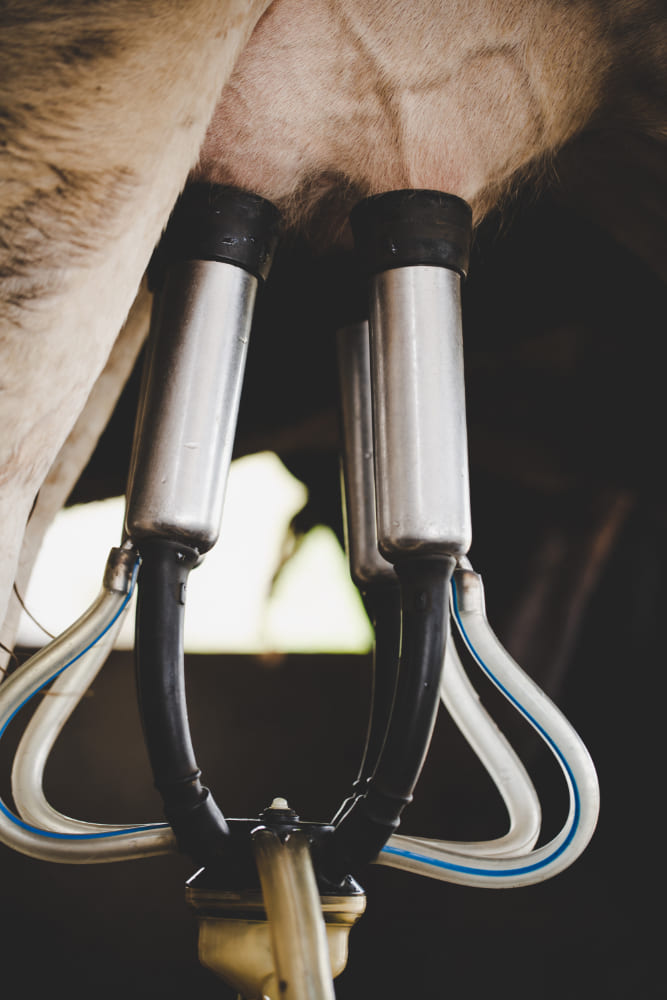
Share this news

The International Dairy Federation (IDF) has launched the IDF Dairy Innovation Awards for 2025, now in their fourth
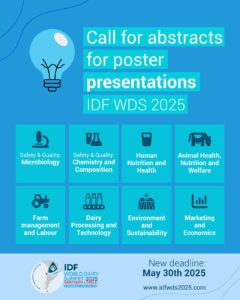
We have extended the abstract submission deadline to May 30 so you can participate with your work. If
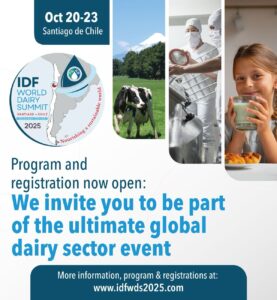
Octavio Oltra, the International Dairy Federation’s (IDF) National Secretary in Chile, praised the diligent efforts of the Consorcio